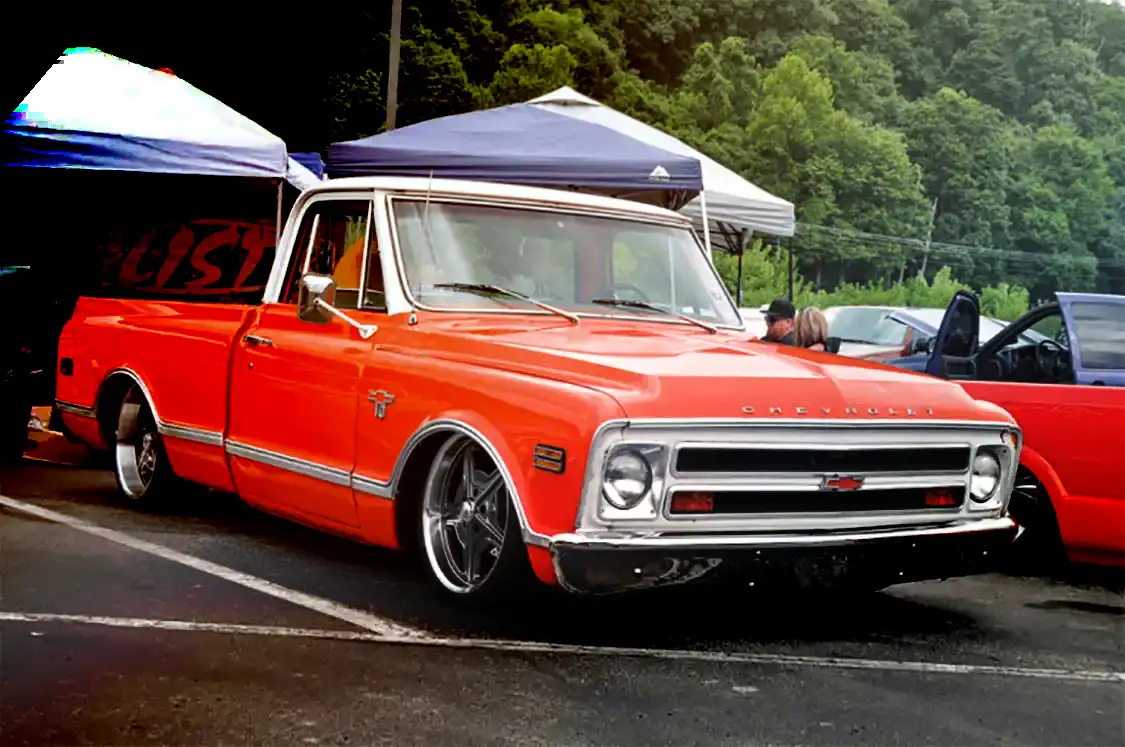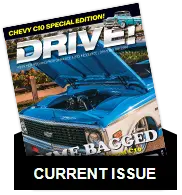Vintage Car Dreams on a North Carolina Farm

Picture a quiet North Carolina road. You stop at an old farm, and instead of crops and hay, you find vintage cars, some bought at local sales, others saved for their forgotten race pedigree. That’s exactly what one 84-year-old farmer has created over a lifetime on his rural North Carolina homestead. For over eight decades, Waynnie has lived on the same farm, gathering an impressive collection of vintage cars and memorabilia, whose historical and sentimental values deepen with every passing year. Waynnie demonstrates that with passion, patience, and ingenuity, an ordinary barn can be transformed into a dream garage.
Of course, putting together a collection like that doesn’t just happen overnight. It takes time, space, patience, and a real love for old machines. Waynnie spent decades working with what he had—tinkering in his barn, tracking down parts, and slowly bringing each car back to life. His story has inspired others across North Carolina to start their collections, hoping to capture that same sense of history and pride.
But starting from scratch isn’t always easy. Restoring classic cars takes dedication—and it can get expensive, especially when you’re chasing rare parts or trying to bring something truly special back on the road. That’s why some turn to North Carolina loans for car enthusiasts as a practical way to fund a project they’re passionate about. Everyone has their path, but it often starts the same way: with one car, one idea, and the drive to keep something meaningful alive.
1955 Chevrolet Bel Air – A Time Capsule on Wheels
At the heart of Waynnie’s collection sits a gorgeous 1955 Chevy Bel Air, perhaps his most cherished car. This classic two-tone Chevy with its chrome accents and iconic tailfins is the crown jewel of his garage. Waynnie bought the Bel Air from his neighbor way back in 1957..
Over the ensuing 68 years, Waynnie has driven and cared for this Bel Air, ensuring it remains both roadworthy and beautiful. He’s put over 180,000 miles on the Chevy. Waynnie performed modest improvements and regular maintenance over the years, keeping the car in top-notch condition. It’s a car that tells its own story—one tied closely to the broader history of the Chevy Bel Air, a model that defined mid-century American style and cruising culture. For Waynnie, it’s more than just a car—it’s a memory on wheels.
Some important characteristics of this model are:
- Year built – 1955
- Body style – Two‑door Bel Air hardtop
- Engine – 265‑cu‑in small‑block V8 (original)
- Miles driven under Waynnie’s care – ~180,000
- Stand‑out feature – Factory two‑tone paint and chrome trim
- Estimated current value – $37,000+
1967 Chevrolet Impala – From Junkyard to Gem
One more car in Waynnie’s trove is a 1967 Chevrolet Impala, a classic full-size auto from the height of the muscle car era. Waynnie found the ’67 Chevy in a junkyard years ago, recognizing that it still had good bones. Many people might have written it off as scrap, but Waynnie saw potential in it.
The restoration was a labor-intensive process that spanned several months. He had to replace parts, mend bodywork, and rebuild the engine. But bit by bit, the old Chevy regained its shine. This Impala is a Convertible model (with a soft top that folds down), which makes it even more special, and the main specialties are:
- Body style – Impala convertible
- Engine – 327‑cu‑in V8 (rebuilt)
- Restoration highlight – Full body‑off restoration
- Special appeal – Late‑’60s muscle‑era styling
- Estimated value (restored) – $35,000–$45,000
1971 Chevrolet Caprice – A Family Sedan Preserved in Time
Waynnie also owns a 1971 Chevrolet Caprice, a full-size family sedan from the early 1970s. The car has its subtle charm. In 1971, the Caprice was Chevrolet’s top model, often referred to as a “baby Cadillac” because it was luxurious for a Chevy. Waynnie’s 1971 Caprice holds a special place in his barns, perhaps because it represents an era he lived through and remembers well.
Perhaps it’s the car you’d imagine seeing at a drive-in movie on a summer night in the ’70s. It’s a unique piece of history that adds diversity to Waynnie’s collection. It reminds us that vintage car collecting is about preserving the everyday vehicles in which people and their families made memories. Well, this model differs in its specifics: maintaining and preserving a classic car collection takes commitment. Each vehicle needs to be cleaned, serviced, and driven occasionally to keep it in good shape—and Waynnie makes sure none of them are forgotten.
Well, this model differs in its specifics:
- Year built – 1971
- Body style – Four‑door Caprice sedan
- Engine – 400‑cu‑in big‑block V8
- Interior highlight – Bench seats with wood‑grain dash
- Preservation status – Mostly original, well‑maintained
- Collector appeal – Rare survivor from the “land‑yacht” era
1979 Chevy Pickup – The Low-Mileage Farm Workhorse
No farm collection would be complete without a trusty pickup truck. Waynnie’s fleet includes a 1979 Chevrolet pickup that he acquired from Virginia. This truck is special for a couple of reasons. First, it dates back to the late 1970s, making it one of the newer “classic” vehicles on the property. Second, it had just 66,000 miles on it when Waynnie got it – a low mileage for a working truck of that vintage.
The 1973–1979 Chevy/GMC pickups are part of the “Square Body” era of GM trucks, known for their boxy, angular styling. Classic American pickup trucks that are perfect for restorations include many models from this period, and the 1973–1979 Chevy/GMC is no exception. With its durable build and timeless design, it continues to attract those looking for restoration projects that are both rewarding and realistic. Enthusiasts love them for their simplicity, ruggedness, and the nostalgia of an era when trucks were becoming mainstream. And for Waynnie, who remembers when trucks like this were new, it’s a reminder that time can turn yesterday’s common vehicle into today’s classic:
- Year built – 1979
- Model – Chevy C/K Square‑Body
- Engine – 350‑cu‑in small‑block V8
- Mileage when purchased – 66,000 miles
- Condition – Original paint, minimal rust, fully operational
- Market trend – Rising demand; clean examples top $20K
1988 Chevrolet Monte Carlo SS
Waynnie’s passion for cars didn’t stop in the mid-century. He even brought home a 1988 Chevrolet Monte Carlo SS, which is a modern classic and one of Chevy’s last rear-wheel-drive V-8 coupes. With its sleek nose and optional T-tops, this ’80s muscle car earned a well-deserved place in his barn.
For years, the Monte Carlo sat quietly, until recently, when it was brought out, washed, and started up for the first time in many years, much to the delight of viewers on The Appalachian Channel. Seeing the Monte Carlo SS run again proves Waynnie’s love of cars isn’t stuck in the past. Well, today you can still find Chevrolet Monte Carlo SS classic cars for sale, but they don’t come cheap. Their rising value reflects just how special these cars have become among collectors and enthusiasts alike.
Here are the main characteristics:
- Year built – 1988
- Trim – Monte Carlo SS (G‑body)
- Engine – 305‑cu‑in HO V8
- Special feature – Aero‑influenced nose and rear spoiler
- Barn story – Sat idle for years before recent revival
- Current value range – $15,000–$25,000
Inspiration for Car Enthusiasts Everywhere
Waynnie’s journey embodies the dream that so many car enthusiasts share: to one day have the time, space, and freedom to surround oneself with the machines that spark joy. Waynnie proves you don’t need deep pockets or a city garage to build a cool lineup of sports machines. Waynnie offers a plan: start small, be patient, cover each ride with the right insurance, and love what you do. For every car enthusiast reading about this North Carolina farm, there’s a sense of “if he can do it, maybe I can too.”


